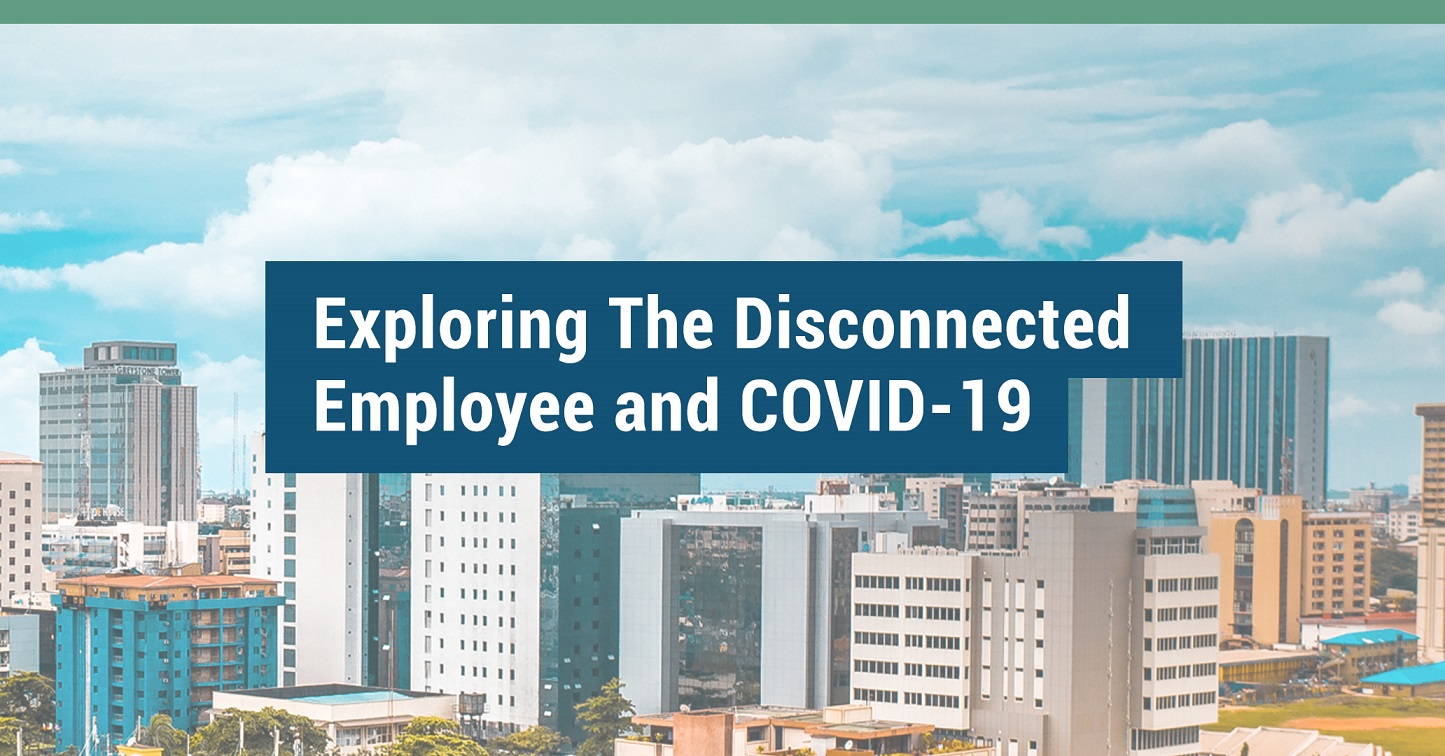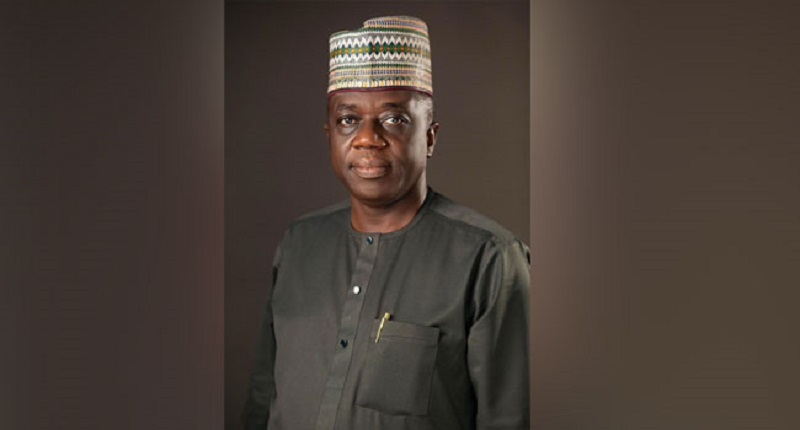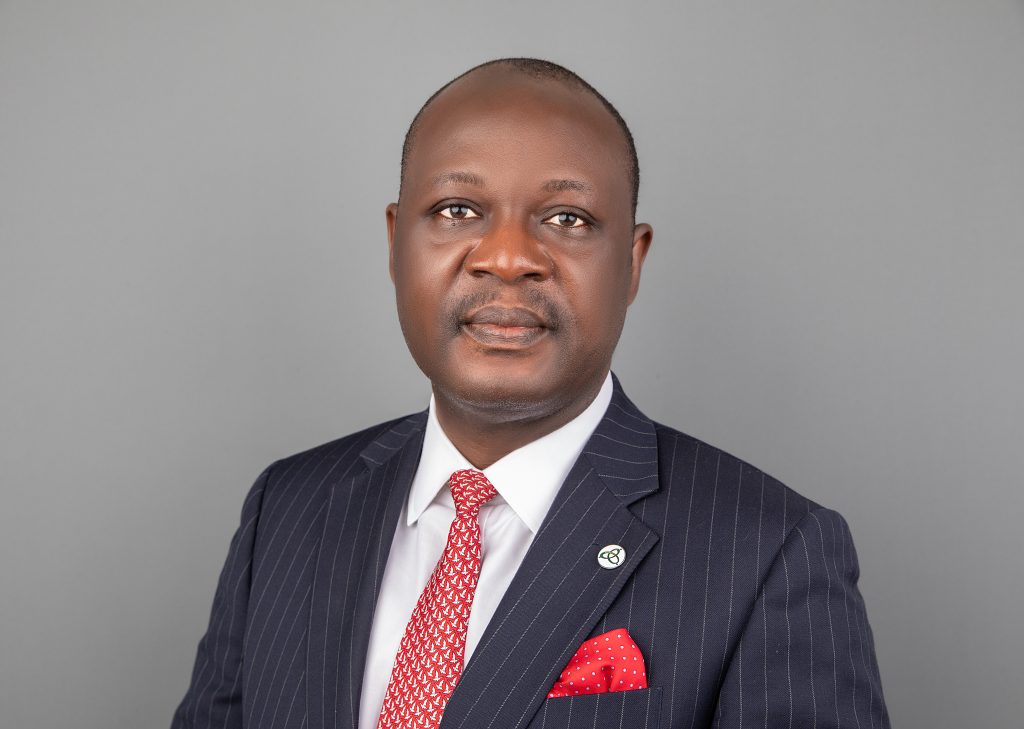Jobs/Appointments
Exploring the Disconnected Employee and COVID-19

About 97% of organisations are not addressing employees’ psychological stress. As global supply chains are disrupted, the International Monetary Fund (IMF) has predicted the worst Nigerian recession in 30 years.
Studies suggest, that areas most topical for Nigerian businesses are liquidity and lay-offs. Board rooms up and down the country are desperately trying to figure out how long the recovery will take and the impact on their cash flow.
However, a recent pcl. study indicates that the well-being of employees must also feature highly on the executive agenda.
From our experience, negative impacts on employee well-being can be protracted and long-lasting, often leading to a psychological disconnection between the employee and the organisation.
With a recession looming, if this disconnection is not tackled head-on, organisations will witness low employee productivity, resulting in a slower-than-expected business recovery in a COVID-19 new normal.
Most Business Continuity Plans (BCP) appeared to place a premium on the provision of hard infrastructure to guarantee business operations.
Therefore, even though 65% of organisations in Nigeria implemented work from home policies during the lockdown, 94% of employees were not provided with Working From Home (WFH) guidelines and best practices.
Nevertheless, WFH was a welcome development, as 65% of employees in Nigeria aimed to use the lockdown as an opportunity to enjoy time with family and pursue personal development objectives.
The question is, should organisations place more emphasis on developing the softer components of the recovery, in a bid to reinforce the psychological contract between the employer and employee?
Our experience suggests that such contracts are critical for developing employee well-being, a consequence of which is improved organisational performance through deeper business connectivity.
For example, despite the organisational focus on hard infrastructure, 60% of employees on average are experiencing electricity and internet challenges while working remotely.
Whilst higher than expected usage by employees was foreseeable, many organisations did not make financial provisions for the additional data that was consumed or provide power banks to cope with electricity fluctuations. This small but meaningful oversight was a common source of an anecdotal employee complaint.
The numbers suggest a broader challenge of organisations failing to align modern digital technologies to firm business commitments pertaining to personal development, continuous learning, cross-functional collaboration and innovation.
With 65% of employees aiming to pursue personal development objectives during the lockdown, merely 7% of organisations prioritised staff training during the lockdown, and only 16% of companies were open to virtual learning.
Furthermore, 64% of employees are still using WhatsApp as the primary business tool while WFH. However, along with standard cybersecurity concerns, as a tool for managing business communications and driving high performing teams, WhatsApp still has several limitations.
But, do the numbers identify a failure to use technology effectively or do they harbour a more profound concern which suggests that organisations are failing to grapple with anticipated seismic shifts in the ‘future of work’?
With the long-term possibility of business uncertainty and disruption in ways of working, technology aligned business objectives are critical for providing employees with the tools essential for empowerment, self-management and personal accountability.
A focus on employee well-being, i.e. team engagement, personal development, social support, and work motivation, is critical at the best of times.
But more so in a time of employee isolation, social distancing, home schooling, financial strain, housing and food insecurity, job anxiety and most importantly, the potential loss of family and loved ones.
Such pressures acutely align with the physiological needs identified by the psychologist Abraham Maslow in his paper “A Theory of Human Motivation”. If an employee is hungry, it will be hard to focus on anything other than food. Predictably, the brunt of the discomfort will fall on those in the medium to low-income bands. According to the National General Household Survey that was conducted in 2019; 32% of Nigerian households experienced food shortages.
This might explain why 41% of employees are admitting to low work motivation, and 75% are struggling with home confinement. Consequently, even though 51% of organisations claimed to possess senior management channels for employee engagement, going forward, we must consider the frequency and commitment to using those channels for discussing issues of well-being.
There are several early warning signs for identifying disconnected employees. Key performance indicators include increased absenteeism, increased number of sick days, lateness to the office, higher staff turnover, low employee engagement, and reduced productivity.
However, a considered approach to driving employee intimacy can shift corporate culture to ensure human capital remains a key lever for performance.
With the uncertainty and complexity of things to come, employee well-being must be front and centre of the recovery process for Nigerian organisations. 57% of employees are expecting wage cuts in the next 1-3 months, so, it would be foolhardy to infer that tough, unpopular decisions do not lie ahead.
But it is also worth noting that decisions that impact employee well-being will have socio-economic outcomes that extend far beyond the organisation and into the broader realms of society (The unintended consequence of change).
The ability of an organisation to remain connected with employees, strengthen the psychological contract and prioritise areas of well-being, are critical to ensuring superior performance and accelerated COVID-19 recovery. Not just for organisations, but the country as a whole.
Jobs/Appointments
Tinubu Appoints Ogunjumi Acting Accountant General as Madein Retires

By Adedapo Adesanya
President Bola Tinubu has appointed Mr Shamseldeen Babatunde Ogunjimi as the Acting Accountant General of the Federation (AGF).
This was contained in a statement on Tuesday by presidential spokesman, Mr Bayo Onanuga.
“His appointment is effective immediately following the pre-retirement leave of the incumbent AGF, Mrs Oluwatoyin Sakirat Madein,” a part of the statement read.
“In announcing Madein’s successor, President Tinubu ensures a seamless transition in the administration of Nigeria’s treasury and consolidates the implementation of the present administration’s treasury policy reforms,” the statement added.
Mr Onanuga said Mr Ogunjimi brings over 30 years of extensive experience in financial management across the public and private sectors.
He described the appointee as a career civil servant and the most senior director in the Office of the Accountant General of the Federation (OAGF),
“He has held significant positions, including Director of Funds at the OAGF and Director of Finance and Accounts at the Ministry of Foreign Affairs.
“A chartered accountant, certified fraud examiner, chartered stockbroker, and chartered security and investment specialist, Mr Ogunjimi’s academic qualifications include a Bachelor of Science (BSc) in Accountancy and a Master’s in Finance and Accounting,” the statement added.
According to Mr Onanuga, President Tinubu expressed his confidence in his appointment, saying, “The Office of the Accountant General of the Federation is pivotal to our nation’s treasury management operations. Mr Ogunjimi’s wealth of experience and notable competence will ensure the continued effectiveness of this vital institution as we advance our economic reform agenda.”
President Tinubu also commended the outgoing Accountant General of the Federation, Mrs Madein, for her dedication and selfless service to the nation.
After reaching the civil service’s statutory retirement age, Mrs Madein is retiring effective March 7, 2025.
Jobs/Appointments
CBN Denies Forceful Mass Retirement Amid Restructuring

By Adedapo Adesanya
The Central Bank of Nigeria (CBN) has dismissed claims of forced mass retirement as part of efforts by Governor Yemi Cardoso to restructure the workforce of the organisation.
In a statement released on Wednesday, the Acting Director of Corporate Communications, Mrs Hakama Sidi Ali, clarified that its Early Exit Package (EEP) is entirely voluntary and without any negative repercussions for eligible staff.
According to the statement, the decision to implement the exercise was the outcome of extensive consultations with the bank’s Joint Consultative Council (JCC), a body representing staff interests.
Mrs Sidi Ali explained that the EEP, a longstanding policy previously accorded to the executive cadre, has now been made available to eligible staff at all levels.
“For some time, staff representatives through the JCC had called on management to approve the early exit package for all cadres. Following these discussions, management decided to meet this popular demand,” she said in the statement.
Addressing concerns about potential repercussions for staff who decline the package, Mrs Sidi Ali reaffirmed management’s commitment to supporting employees’ professional growth and well-being, describing the concerns as unfounded.
She further emphasized that the initiative is an internal corporate matter designed to promote career development for staff.
According to wide spread reports, there have been plans to retire approximately 1,000 employees by the end of the year with a payoff estimated to cost over N50 billion.
The mass retirement, which was announced in a circular issued three weeks ago, mandates affected employees to apply for the Early Exit Package (EEP).
The statement allegedly warned employees with less than one year of service or unconfirmed appointments to refrain from applying for the program, noting that the application would remain open until December 7, with an effective exit date of December 31, 2024.
It was reported that the entire EEP was valued at N50 billion.
Jobs/Appointments
CBN Okays Appointment of Benson Ogundeji as Greenwich Merchant Bank CEO

By Modupe Gbadeyanka
The Central Bank of Nigeria (CBN) has approved the appointment of Mr Benson Ogundeji as the chief executive of Greenwich Merchant Bank Limited.
The board of the financial institution for businesses had picked Mr Ogundeji as its substantive CEO but awaited the authorisation of the banking sector regulator.
He brings over three decades of extensive banking experience to this role as a seasoned financial services professional, who previously served as Executive Director at Greenwich Merchant Bank from July 2020, where he played a pivotal role in the bank’s successful transition from the legacy Greenwich Trust Limited to a merchant bank.
In this capacity, he provided oversight for Corporate Banking, Treasury and Global Markets.
Throughout his career, Mr Ogundeji has demonstrated exceptional expertise in business development and operational excellence.
Before joining the firm, he held various senior leadership roles at prominent financial institutions, including Ecobank Nigeria, GTBank, and other notable banks, where he consistently displayed exceptional leadership skills.
His appointment comes at a crucial time as Greenwich Merchant Bank commences the next phase of its growth plans. Having related closely with the new CEO, as an Executive Director and acting CEO in the last four years, the board has expressed confidence about his ability to lead the bank in delivering our strategic goals.
“The board is pleased to announce the appointment of Benson Ogundeji as our Managing Director/Chief Executive Officer,” the chairman of Greenwich Merchant Bank, Mr Kayode Falowo, stated.
-

 Feature/OPED5 years ago
Feature/OPED5 years agoDavos was Different this year
-
Travel/Tourism8 years ago
Lagos Seals Western Lodge Hotel In Ikorodu
-

 Showbiz2 years ago
Showbiz2 years agoEstranged Lover Releases Videos of Empress Njamah Bathing
-

 Banking6 years ago
Banking6 years agoSort Codes of GTBank Branches in Nigeria
-

 Economy2 years ago
Economy2 years agoSubsidy Removal: CNG at N130 Per Litre Cheaper Than Petrol—IPMAN
-

 Banking2 years ago
Banking2 years agoFirst Bank Announces Planned Downtime
-

 Sports2 years ago
Sports2 years agoHighest Paid Nigerian Footballer – How Much Do Nigerian Footballers Earn
-

 Technology4 years ago
Technology4 years agoHow To Link Your MTN, Airtel, Glo, 9mobile Lines to NIN












